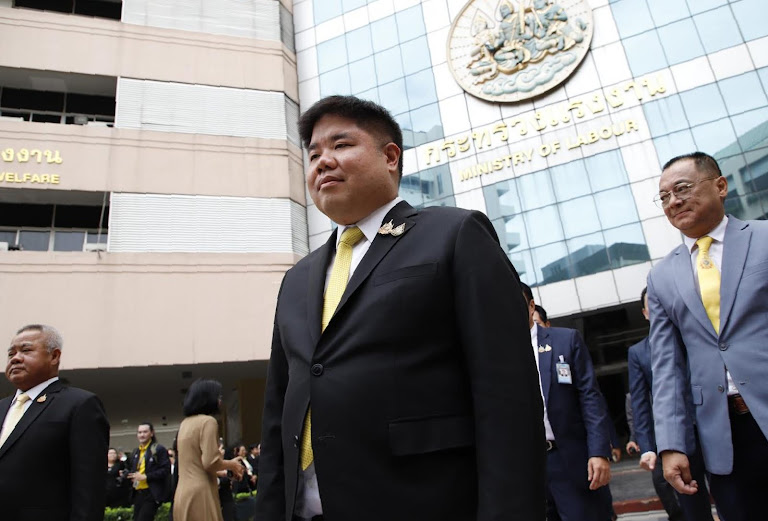Thailand Bets Big: Reskilling Millions to Thrive in the Age of AI
Facing aging population and reliance on automation, Thailand preemptively invests in its workforce with AI reskilling initiative.

The robots are coming. We hear the dirge constantly, a chorus of anxieties about mass unemployment and societal collapse. But what if the prevailing narrative of technological dystopia is, as usual, too simple? What if the real question isn’t whether AI will transform work, but how, and for whom? In Thailand, newly installed Labour Minister Pongkawin Jungrungruangkit appears to be betting on a more nuanced, and potentially more optimistic, answer. He’s unveiled five core policies, heavily focused on AI training and youth employment, signaling a preemptive adaptation to the shifting sands of the global labor market. As reported in the Bangkok Post, the plan addresses both formal and informal workers.
The Minister’s stated aim is to proactively reskill the Thai workforce and ensure “equitable care for all worker groups.” It is a bold move, premised on the idea that future prosperity depends not on resisting automation, but on mastering it. Can this strategy be implemented?
He said he believes his experience will enable him to create effective policies.
Minister Jungrungruangkit’s initiative offers a particularly fascinating test case in this complex equation. Consider the fourth policy, which is aimed at reskilling 1.8 million Thai workers to allow them to earn a higher wage. Thailand’s current minimum wage averages to a little over 350 baht a day (around $10 USD), so to “urgently” focus on lifting low wage workers beyond 400 baht shows an intent to change that. And, his policies encompass a comprehensive plan that address not only the AI transition, but also labor shortages, informal employment and issues regarding migrant worker integration.
What’s missing from the headlines is the confluence of pressures driving this AI pivot. Thailand, like many nations in Southeast Asia, faces a demographic double whammy: a rapidly aging population and a shrinking birth rate. The total fertility rate in Thailand has plummeted from over 6 in the 1960s to just over 1 today, well below replacement level. Combine that with a growing reliance on automation to maintain global competitiveness in sectors like automotive manufacturing — a cornerstone of the Thai economy since the 1980s — and strategic upskilling becomes not just desirable, but a matter of national survival. Historically, Thailand’s economy has relied heavily on low-cost manufacturing, particularly for export, but that model is increasingly vulnerable. This reality underscores Jungrungruangkit’s plans to train workers to navigate the modern era.
Moreover, the challenge is not simply technical. As anthropologist Anna Tsing has argued in her work on the global mushroom supply chain, global capitalism thrives on precarity and informal labor, creating “friction” — points of disconnection and exploitation — even as it connects the world. AI training, then, can’t be viewed in isolation. It needs to be embedded within a broader framework of social and economic justice, addressing issues like wage inequality and access to healthcare, if the benefits are to be broadly shared. The second policy, to extend labour protection to 21 million informal workers, reflects this understanding, though the devil will undoubtedly be in the details, particularly regarding enforcement and funding.
Ultimately, Pongkawin Jungrungruangkit’s gamble reflects a growing recognition that technological disruption is not a future threat, but a present reality. But it’s also a bet that technology can be steered towards a more equitable future. The question is not just whether Thailand can train its workforce for the AI age, but whether it can do so in a way that reduces, rather than exacerbates, existing inequalities. The future of work is not predetermined. It will be determined by the choices we make today, and in Thailand, that choice is to embrace, adapt, and hopefully, redefine what it means to thrive in an automated world. The outcome will offer a crucial case study for the rest of us.









